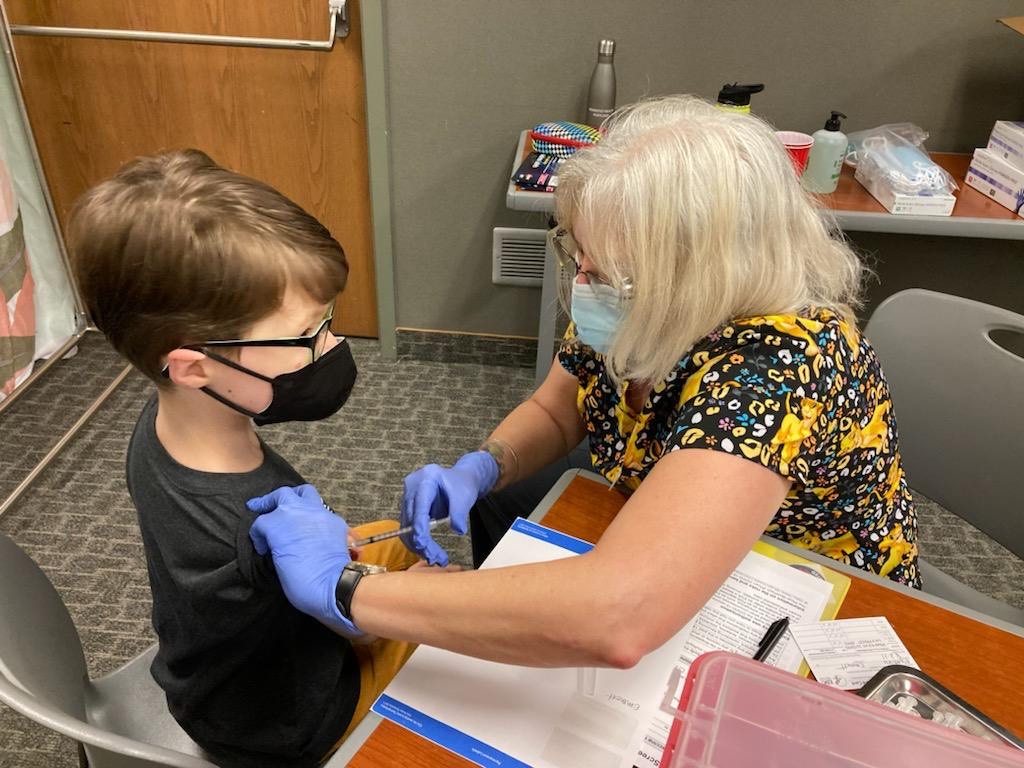Updated 2023-2024 COVID Vaccine
COVID-19 vaccines are exceedingly safe. Like every other vaccine, they do not provide 100% immunity. However, they remain highly effective at preventing severe disease, hospitalizations, death, and long-COVID.
Our support of COVID vaccination is not just empty words; every single one of us with children, as well as every pediatrician we know, have vaccinated their infants, children, and teens as soon as they were eligible.
We will be offering the Pfizer 2023-2024 COVID-19 vaccine for all age groups.
One dose of the updated vaccine should be given at least 8 weeks after the last dose.
Pfizer vaccine may be used for this dose even if the primary series was Moderna.
For those previously unvaccinated against COVID a complete 3-dose series is recommended.
Children 5 - 11 years old need two doses of the Pfizer vaccine 3 weeks apart. The newer bivalent COVID-19 booster is available for this age group a minimum of 2 months from the second primary dose or the previous booster. We recommend staying up-to-date on boosters for maximum protection.
Moderna vaccine is also approved for this age group, but we do not have it available.
The Science Behind COVID-19 Vaccines: Parent FAQs (American Academy of Pediatrics)
When Can Kids Get the COVID-19 Vaccine or Booster? (American Academy of Pediatrics)
Adolescents 12 years and older need two doses of the Pfizer vaccine 3 weeks apart. The newer bivalent COVID-19 booster is available for this age group a minimum of 2 months from the second primary dose or the previous booster. We recommend staying up-to-date on boosters for maximum protection.
Do Healthy Young People Need the COVID-19 Vaccine? (American Academy of Pediatrics)
Does the COVID-19 vaccine cause myocarditis? (American Academy of Pediatrics)
When can Kids Get the COVID-19 Vaccine? (American Academy of Pediatrics)

Protecting your family against COVID-19
Vaccines are one way to prevent COVID-19, but there are other things you can do too. Layering protections is an important strategy in lowering risk and minimizing COVID-19 exposures and infections.
- Improving air quality is vital, as the SARS-CoV-2 virus is airborne, meaning it can remain floating in the air for hours. Opening windows, running fans, and HEPA filters (or homemade Corsi-Rosenthal boxes) can reducing transmission of the virus.
- Ventilation and filtration in schools has been shown to reduce COVID-19 transmission and absenteeism. Talk to your child’s school!
- Masks remain a very effective layer of protection in enclosed or crowded spaces, especially when COVID-19 cases are high.
- Getting ready for a big trip, competition, performance, or school event and don’t want to miss it? Take extra precautions, and mask in the two weeks leading up to the event!
- Children and teens who are at high risk for severe COVID-19 infection may be able to receive antiviral medications.
- Paxlovid is recommended for those 12 years or older with certain medical condition that places them at risk for developing severe disease. Call us to determine if your child is eligible. Paxlovid should be started within the first 5 days of becoming sick.
- Remdesivir is another antiviral that is approved down to 28 days of age. However, it if given by IV infusion, once daily over 3 days.


COVID-19 Vaccine FAQs
While they could get their COVID-19 vaccine after the 10 days of isolation are over and symptoms are resolved, there is growing evidence that it may be best to wait 3 months. According to the CDC, "studies have shown that increased time between infection and vaccination might result in an improved immune response to vaccination.
The CDC recommends getting the dose that is appropriate for the age the child is on the they are vaccinated, but there are dosing options for those turning 5 between doses.
Questions and Answers about COVID-19 Vaccines from Children's Hospital of Philadelphia's Vaccine Education Center.
COVID-19 Resources are available in multiple languages from Boost Oregon.
The American Academy of Pediatrics has a number of articles and FAQs on their Healthy Children website.
How COVID Vaccines Work, a video for children from Cincinnati Children's Hospital.
How COVID-19 mRNA Vaccines Work, from the Vaccine Makers Project, shows how your body uses the mRNA vaccine with beautifully done graphics. They have many other videos covering everything from COVID-19 viral vector vaccines to how antibodies work.
A pediatric cardiologist talks about Myocarditis and COVID-19.
